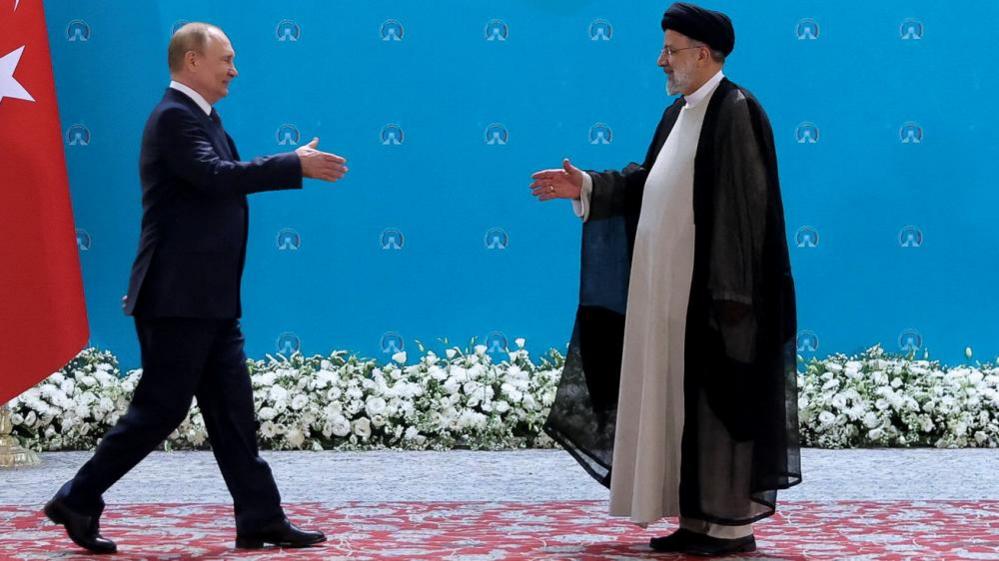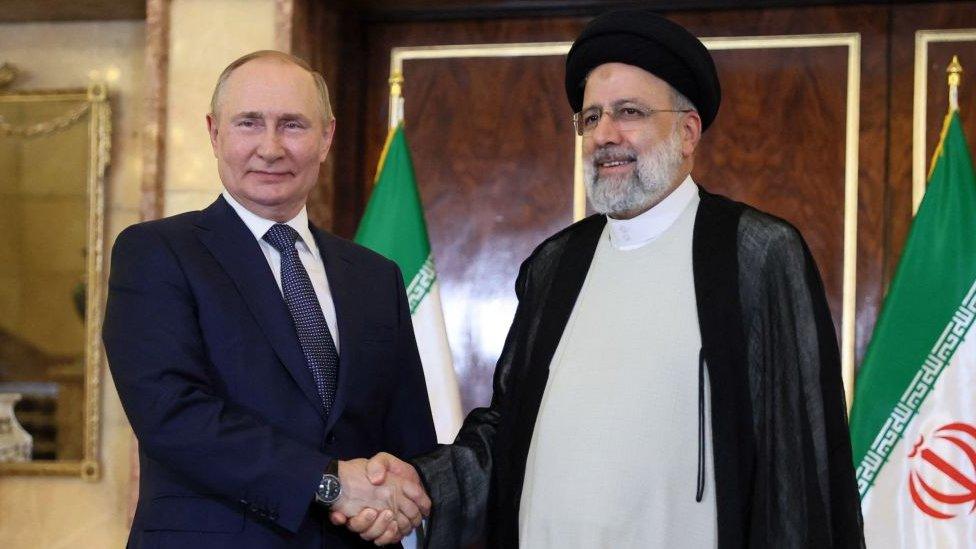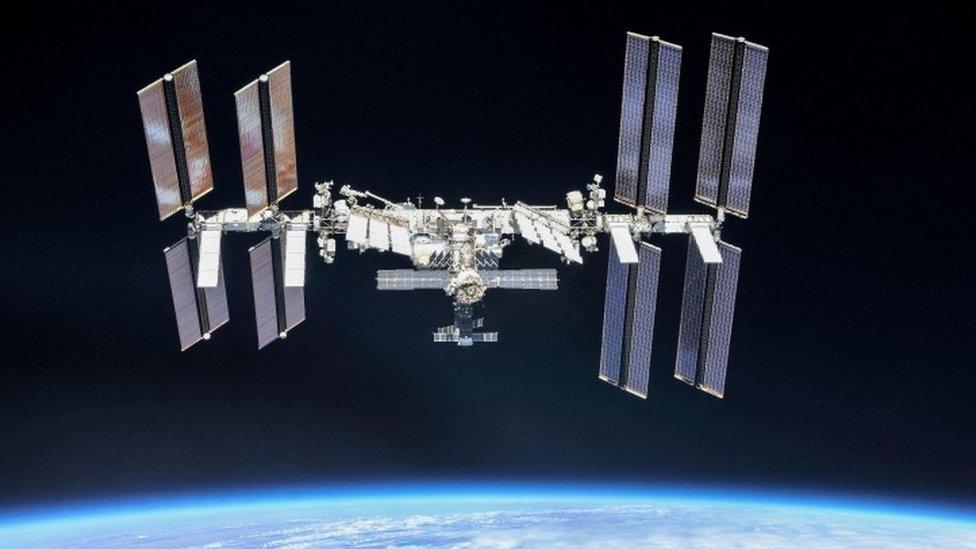US officials concerned as Russia launches Iranian satellite
- Published
Watch: Moment Russia launches Iranian satellite into space
Russia has successfully launched an Iranian satellite into orbit amid US concerns over its planned purpose.
The satellite, called Khayyam, was launched from the Russian-leased Baikonur launch facility in Kazakhstan.
Iran has said it will be used for environmental monitoring and will remain under Tehran's control.
But last week, US officials told the Washington Post that they feared the satellite could be used by Moscow to spy on troop movements in Ukraine.
Russia has struggled to achieve military objectives in Ukraine and the officials alleged that Moscow's space agency, external, Roscosmos, told Tehran that it planned to maintain control over the satellite for "several months or longer" to assist with its war effort.
The unnamed sources added that the satellite could give Iran and Russia "unprecedented capabilities" to almost continuously monitor troop movements and bases.
But Tehran has rejected the allegations and emphasised that it will have full control and operation over the satellite "from day one".
"The rumours about using the satellite's photos for military purposes are wrong," said an Iranian statement on Tuesday.
Fitted with a high-resolution camera, the satellite will be used for agricultural programmes and to monitor water resources and other environmental applications, the Iranian space agency said.
Irna, Iran's state news agency, said Tehran's space agency had already received the first data from the satellite.
The launch comes just three weeks after Russian President Vladimir Putin visited Iranian supreme leader Ayatollah Ali Khamenei in Tehran.
During the meeting, the pair pledged to deepen relations between their two countries. Both nations are subject to US-led Western sanctions.
Yuri Borisov, the head of Roscosmos, said the launch was an "important landmark" in relations and co-operation between Moscow and Tehran.
And Iran's Telecommunications Minister, Issa Zarepour, who travelled to Kazakhstan to attend the launch, called it "a turning point for the start of a new interaction in the field of space between our two countries".
The launch also comes at a time of increased tension between the US and Tehran, after the EU submitted a "final text" at talks to revive the failed deal aimed at limiting Iran's nuclear ambitions.
Officials in Washington and Tehran must now decide whether to sign the draft proposals.
The Khayyam satellite is named after the Persian poet and philosopher Omar Khayyam and marks a rare successful launch for the regime after several failed efforts in recent years.
Related topics
- Published20 July 2022

- Published19 July 2022

- Published26 July 2022
